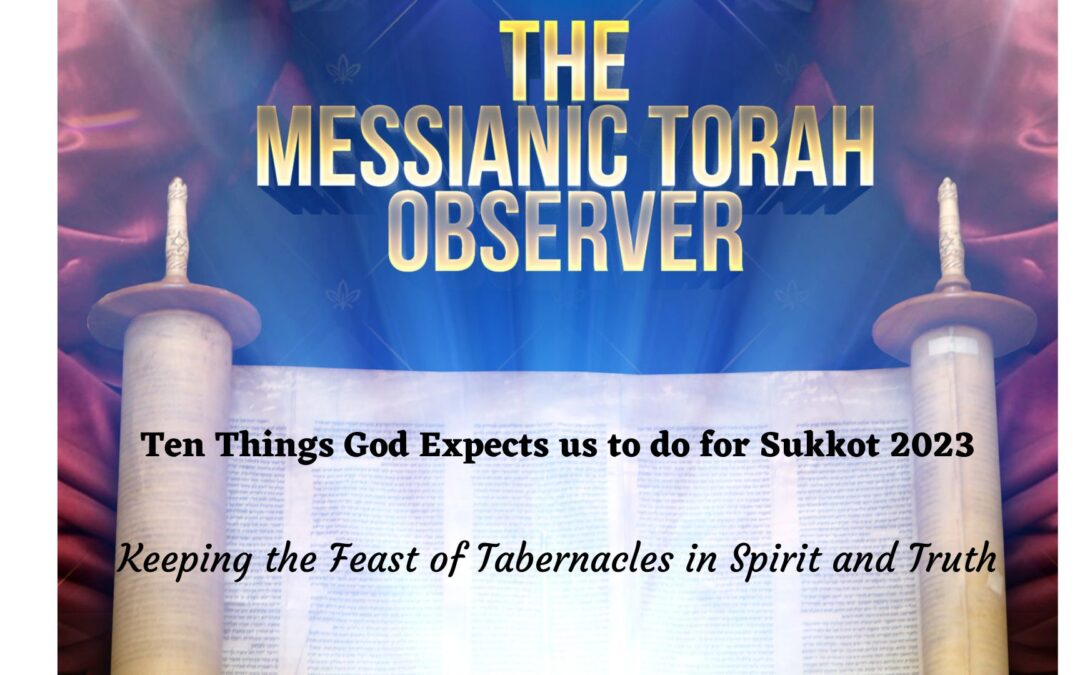This Week’s Torah Reading
In continuing my travels through this week’s Torah Reading, I came upon Exo. 21:28-36. I found endless truths and spiritual applications that I am so happy to share with you today.
The Consequences of Negligence
This passage in a narrow sense addresses gross negligence versus inadvertent tragedy–specifically the goring of an ox (someone’s property) that causes another to death. Inadvertent tragedy results in the stoning of the ox, but gross negligence leads to the stoning of both ox and owner. There is also provision for victim compensation in exchange for the negligent owner’s life. If the family of the victim chooses to instead receive financial compensation for their loved one’s death, then the negligent owner must pay the ransom in exchange for their life.
A Gender Inclusive Mitzvah
This mitzvah is gender inclusive. Regardless the victim be male or female, the penalty for negligence is the same. (So much for the misogynists among members of our Faith community who diminish the equality of women in our Faith.)
Compensation For Negligence
Earlier in this reading we saw the concept of compensation revealed. Exodus 21:22 speaks to a pregnant woman who loses her unborn child after being inadvertently struck by another, the husband of the victim can petition the judges to extract financial compensation from the offenders, in exchange for their lives. (This should also be a reminder of the importance YHVH places on the survival of the unborn child. Life for a life. Why can’t we get this concept in our society today?) Indeed, Yah here in great part, through His Torah, addresses the sanctity of life. Life is above all precious in the sight of our Heavenly Father.
No Joy Over One’s Death
Even the execution of a murderer is viewed in Torah as a loss. We were instructed by Abba in Numbers 35:31 that we were NOT to take any satisfaction in the execution of that murderer. Our natural inclination as humans (which is inherently evil) is to relish and celebrate the death of a convicted criminal or murderer. But Abba has instructed us to behave otherwise. Yes, capital punishment is a Torah principle that should be instituted in a Torah-based society. Nevertheless, the bigger thing to draw out of executions of convicted murderers is the all around tragedy that is derived in the death of both victim and perpetrator.
More About Love Than Avoiding Negligence
Few will recognize that what Yah was attempting to do regarding this mitzvah is to instill a sense of love and caring for one’s fellow man. This is part of love thy neighbor as thyself. When we truly care about our neighbor, we make provision/we take action to protect their wellbeing.
Love That Ensures Well Being and Safety of Neighbor

Torah is first about loving YHVH, then loving one’s neighbor. This is the gist of this week’s Torah Reading.
Granted, the hardened heart would would look at this mitzvah and only see a law that constrains someone to control their property. This is certainly a byproduct of this mitzvah. However, the higher aspect of Torah related to this mitzvot is love: love for thy neighbor. When we love our neighbor, we take every precaution we can to ensure their safety and wellbeing.
Modern Day Application
Have we not heard stories over the years, for instance, of dog owners who did not take proper precautions to secure their pets. These vicious pets in up attacking, and in some cases, killing innocent bystanders–that dog owner’s neighbor so to speak.
Spirit of Torah Basis of Some U.S. Laws
Many of the laws of our nation were in great part built upon the spirit of Torah. Such owners, when subjected to these laws, are made to atone for their negligence: their vicious pet is typically euthanized and they, depending upon the severity of the negligence are subject to prison time and financial penalties. Justice. In such cases, if the owners really cared about the well being of the neighbors who ultimately became victims of their neglect, they would have either taken the appropriate precautions to prevent the tragedy or not possessed the potentially deadly pet in the first place.
Recompense For Negligent Death of a Slave
One of the most sobering Truths to be had in this section of the Reading this week is verse 32 of the 21st chapter of Exodus. In this verse Abba instructs that the negligent death of a servant or slave would require the owner of the deceased slave 30-pieces of silver as compensation from the owner of the animal that killed servant.
Who else do we know was killed in exchange for 30-pieces of silver? Yahoshua our Messiah was betrayed by Judas Escariot in exchange for 30-pieces of silver: the recompense for the death of a slave (Mat. 26:15; 27:3). The price rendered by the Jewish leaders was as prophesied (Mat. 27:9, drawing from Jer. 19:1-13 and Zec. 11:11-13). In other words, Yeshua’s life was valued at the level of a simple slave or servant. Certainly given the extreme preeminence of who He truly was, 30-pieces of silver was beyond laughable.
Torah A Rich Tapestry of Truthes
Surely, the textures and colors of Abba’s Word is unfathomable to say the least. The owner of the killed servant receives 30-pieces of silver in recompense, which was likely the amount of money needed to procure another servant if the owner so chose. Yeshua, our Messiah, described Himself as a simple servant. We as His disciples, are equally viewed as simple servants.
30 Pieces of Silver
I believe the recompensing of the 30-pieces of silver goes well beyond the concept of a dollar amount that was placed on the replacement of a lost servant. According to www.quora.com, 30-pieces of silver in Judas’ day was worth about $600. That $600 translated into about 5-weeks general wages. Certainly no small, trivial amount. Conversely, the amount of 30-pieces of silver is no “king’s ransom” either. But when money is hard to come by, $600 was something to be desired and it certainly would not be too difficult to find someone to do the payer’s bidding, no matter how heinous and evil that bidding turned out to be.
The Pricelessness of Biblical Servitude
More so, the greater concept here is that Father and Yahoshua saw the value in servitude and love for one another above all. When compared to the value that man will place on the life of a servant (as we saw in the case of Judas’ betrayal of Yahoshua), the value of servitude and love for God’s children cannot be priced.
Yahoshua’s Commandment of Love
Yahoshua, who is the quintessential model of Torah, clarified the second aspect of Torah which is to possess love for one’s neighbor (Mat. 22:39; Luk. 10:27). Unfortunately, as a result of the hardness of our hearts back in the day, the love that Torah was to instill and inspire in us was lost in the religious leaders’ sense of humanism. To these, such mitzvot were more about keeping order in society. These laws instilled fear in the hearts of the citizens to “straighten up and fly right” for fear of judgment (thus the English translation of the title of this Reading: Mishpatim or Judgment).
Humanism Versus Torah
As our societies delve deeper and deeper into humanism today (ie., the satanically derived system that attaching ultimate importance to human rather than the divine with complete emphasis on common human needs, in so doing, applying only rational, carnal solutions to human problems), we move further and further away from love for YHVH and Yeshua Messiah and for our neighbor. It becomes all about fulfilling our own desires and perceived needs at the expense of others. Life becomes one of creating a system for ourselves and others that forces everyone to adopt a mindset that is in defiance and opposition to Yah and His Ways. Indeed, those pushing such agendas cloak their efforts under the guise of justice and care for the underserved; the marginalized; the downtrodden of our society. In reality, their agendas are rarely so altruistic. Instead, they are self-serving and hateful.
The Creator’s Way of Life
Father has established the only Way of life for mankind. His Way is based on love, justice and Truth. And a Yeshua-centric Torah Life is the only cure for society’s dire situation. Sadly, the world villainizes Torah. Secular society claims that God’s Ways are hateful and inhuman, despite what one can clearly see when Torah is viewed through the teachings and example of Yahoshua Messiah. Even popular Christianity hates God’s Ways. How many times have we been accused of having fallen from Grace by so-called fundamentalists because we elect to adopt a Yeshua-centric Torah Life? And Truth be told, most well meaning Christians (as much of the law abiding peoples of the Western world do) in their day-to-day lives actually keep Torah. Sadly, they don’t even realize it.
-
They don’t kill.
-
Most don’t steal.
-
Many don’t commit fornication or adultery.
-
A great many of them will even tithe and give to their religious organizations.
-
The vast majority do what is required of them by laws that were based on Judeo-Christian principles.
Outright Defiance of God and His Ways
What the fundamentalists and evangelicals do though is they, in defiance of Yah and His Ways, (1) refuse to keep His weekly Sabbath; (2) reject Abba’s food laws; and (3) shun Father’s appointed moedim–His set apart days–His Feasts. Indeed, these have no problem keeping the morale arm of Father’s Torah. But these will reject Abba’s ceremonial/worship elements of Father’s Torah: worshiping Him on his appointed days in bodies that are not to be defiled by that which is not Yah-sanctioned food.
Closing Thoughts
May we celebrate YHVH’s grace and loving kindness as He has saw fit to open our eyes to Truth. And with all the evil that is ramping up around us, is it not an indescribable blessing to have Truth implanted in our hearts, minds and souls? Let us share that Truth as Father affords us the opportunity to do so.
Faithfully,
Rod



0 Comments